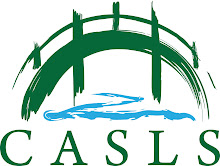Call for papers: Special issue of the International Journal of Bilingual Education and Bilingualism on Immersion Education in the Early Years
Guest Editors: Tina Hickey and Anne-Marie Truscott de Mejia
This special issue will consider an area of bilingual education which has grown significantly in research interest in recent years. The topic encompasses settings in which children aged up to 6 years are educated through either minority and/or majority language(s), in either monolingual or dual-language immersion.* The aim of the special issue is to collect a representative set of research contributions exploring immersion in the early years, encompassing, but not limited to, issues such as policy development and implementation, parental motivation and attitudes, and pedagogical process and outcomes. Related aims are the encouragement of international exchange on this topic and the international dissemination of effective practice in early years’ immersion. Papers examining early years’ immersion education from all countries and regions are welcome. Those interested in submitting a paper are invited to submit an abstract by 30 January, as described below.
Submission guidelines
Deadline for receipt of Abstracts (400 words max.): 30 January 2012. Abstracts should be emailed as Ms Word attachments to tina.hickey at ucd dot ie AND to atruscot at uniandes dot edu.co
Date of notification of authors of acceptance/rejection of abstracts: 12 March, 2012
Deadline for submission of full papers (max 7,000 words): 19 June 2012. Papers must include 6 keywords, and author contact details. Figures must be in .jpg or .tiff format
Planned year of publication of the issue: December, 2013
* Monolingual early immersion models offer early years’ experience through a single language. This may be the second language of the majority attending, with the aim of achieving additive bilingualism; or a minority language that is the mother-tongue of at least some of the children attending, to support/enrich that language before exposure to the majority/community language. Dual-language immersion preschools expose young children to two languages in the early years’ setting. One language may be the first language of some children, and the other may be the dominant language of the wider community, with the aim of supporting the mother-tongue of the non-dominant group and developing bilingual competence in both groups.
Hickey, T. [BILING] Call for papers: Special issue of IJBEB on Immersion Education in the Early Years. BILING listserv (BILING@LISTSERV.UMD.EDU, 4 Jan 2012)
January 8, 2012
Subscribe to:
Post Comments (Atom)





No comments:
Post a Comment
Note: Only a member of this blog may post a comment.